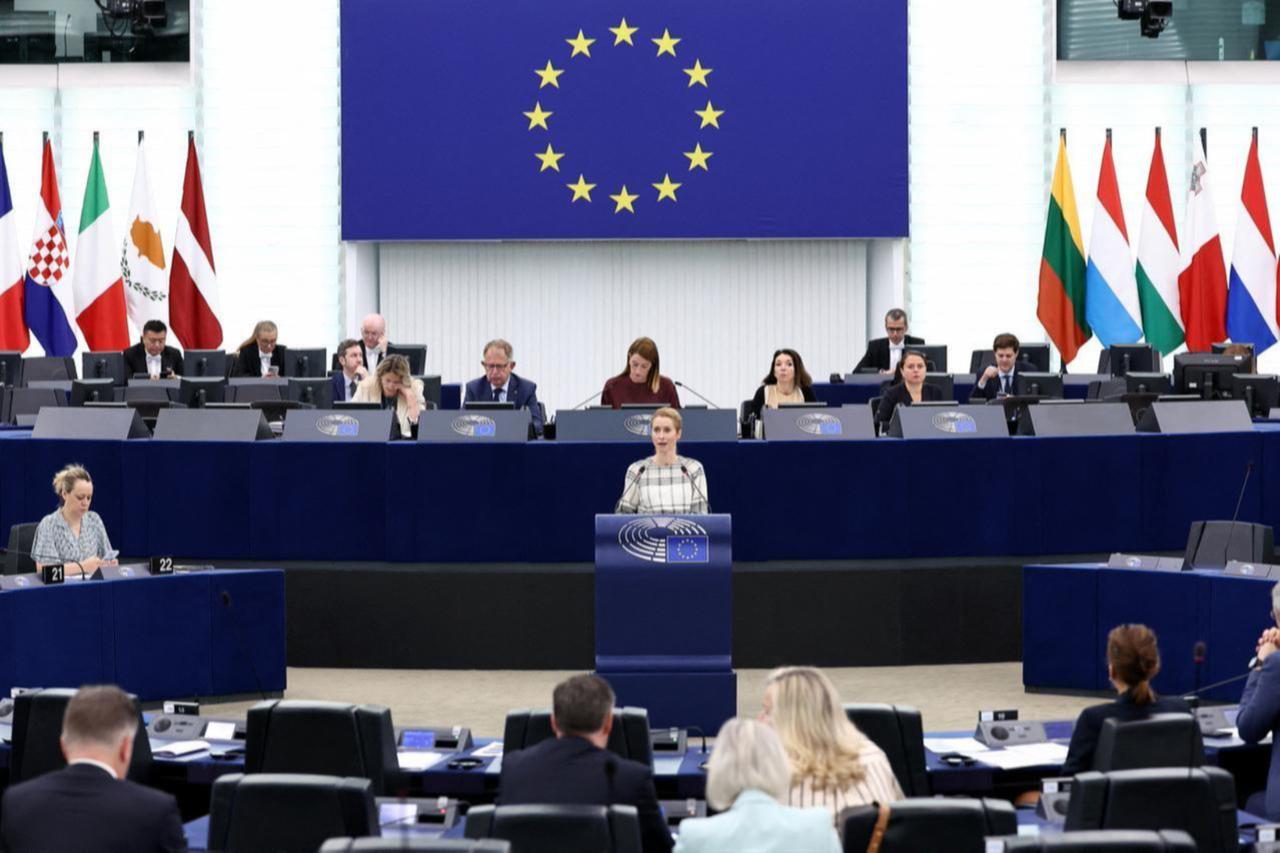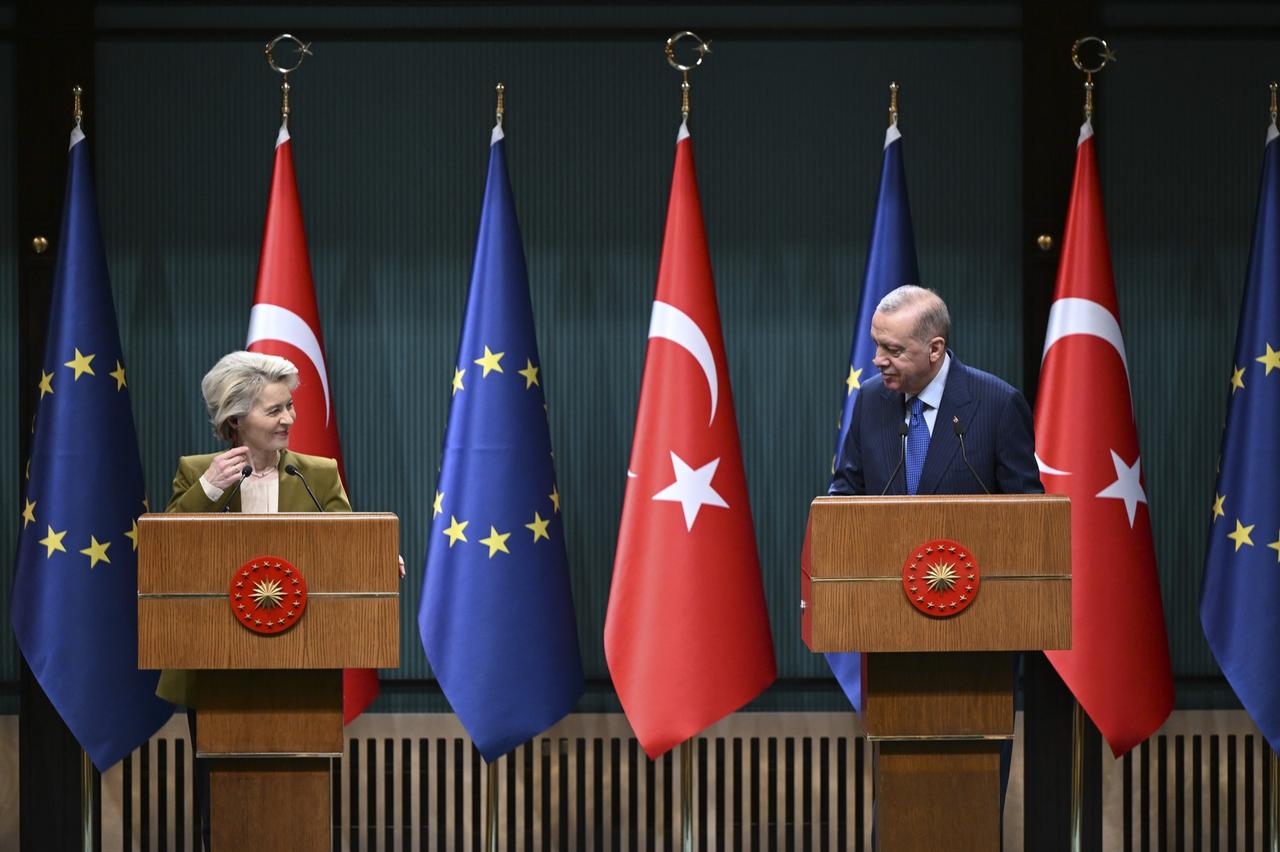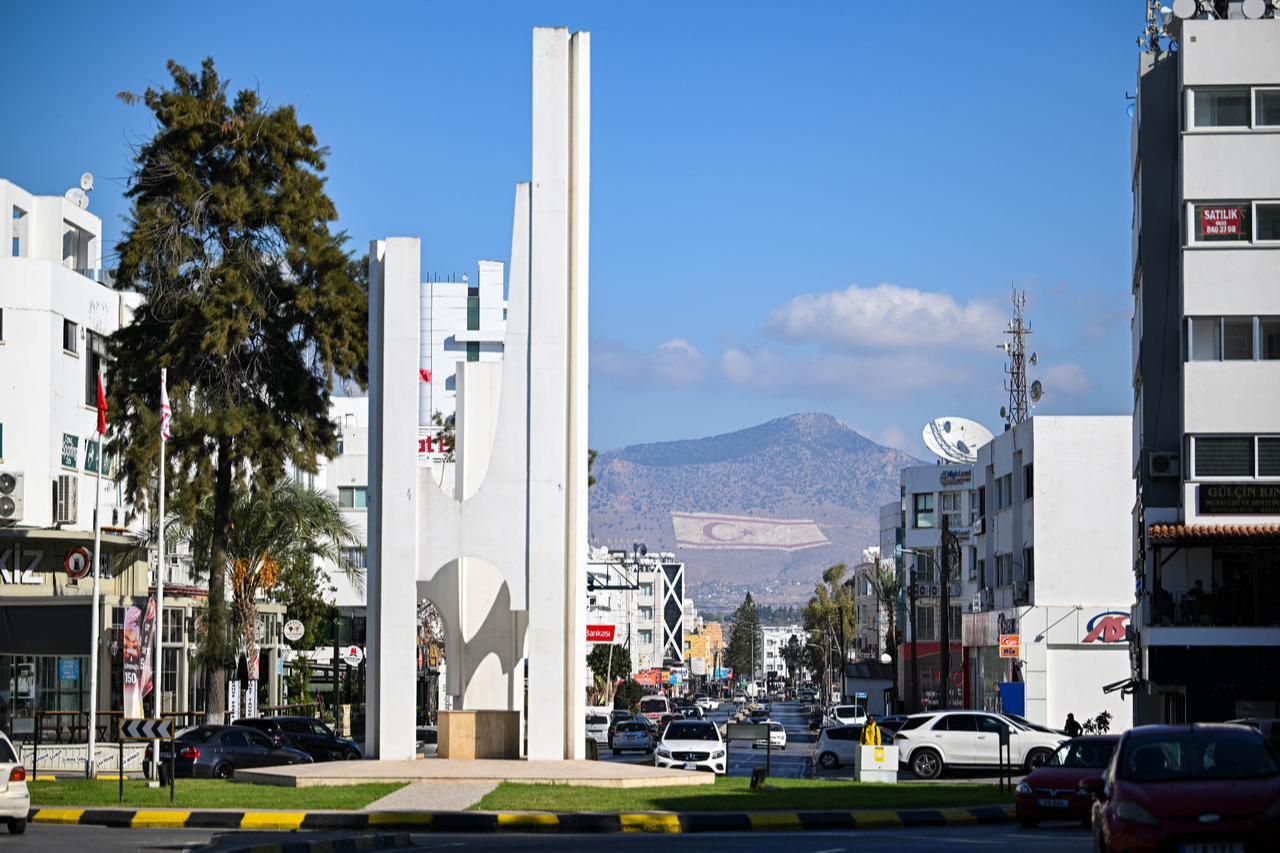
EU foreign policy chief Kaja Kallas said Wednesday that Türkiye remains a fundamental partner for the bloc and an important regional actor, even as its accession process continues to be “frozen.”
Speaking at a press conference in the Greek Cypriot administration alongside Foreign Minister Konstantinos Kombos, Kallas said the EU maintains constructive engagement with Türkiye in areas of shared interest.
“We have positive engagement with Türkiye in areas of common interest. Türkiye remains a key partner for the European Union and a significant regional actor,” she said.
However, she noted that Türkiye’s EU accession process has been stalled since 2018 due to concerns over democratic standards and judicial independence.

Kallas also described the Cyprus issue as a central factor in Türkiye-EU relations, stressing the bloc’s full support for U.N.-led efforts to reach a settlement.
“Of course, neither Türkiye nor the EU will govern the island of Cyprus in the future,” she said. “The Greek and Turkish Cypriots must live together and find solutions to common challenges. Both communities need a sustainable solution.”
Asked whether Türkiye could be part of Europe’s defense architecture, Kallas pointed to rising defense spending and industrial development within the EU. She said that when European production is insufficient, procurement from external partners may be needed, citing the European Security Action Programme (SAFE) as an existing mechanism balancing defense readiness and support for Ukraine.

Meanwhile, Ankara on Tuesday rejected the European Commission’s Türkiye report, saying it contains “biased” assessments and unfounded allegations concerning the judiciary, fundamental rights and domestic political developments.
The Foreign Ministry said the report does not reflect efforts to establish a positive agenda in Türkiye-EU relations and uses language contrary to the long-term interests of both sides.
Ankara said the report’s evaluation of Türkiye’s alignment with the EU acquis demonstrates the country’s commitment to its strategic goal of EU membership despite “political and unjust obstacles” in the accession process.
The ministry welcomed the report’s recognition of Türkiye’s constructive stance in the Eastern Mediterranean, improved relations with Greece and increased dialogue with the EU. Based on these developments, Ankara reiterated its expectation that EU Foreign Affairs Council decisions dated July 15, 2019—which imposed restrictive measures—be repealed swiftly.
The ministry also positively assessed references to Türkiye’s “active and multi-layered foreign policy vision,” its efforts to strengthen strategic partnerships and its constructive role in regional peace and stability. It emphasized that the report acknowledges Türkiye’s strategic importance to the EU amid regional and global challenges.
Ankara said it is essential to ensure the effective functioning of existing partnership mechanisms between Türkiye and the EU and to include Türkiye in EU initiatives on defense and security.
The Foreign Ministry criticized the report for including “unrealistic, unlawful and maximalist views” of Greece and the Greek Cypriot administration while ignoring the legitimate concerns of Türkiye and the Turkish Republic of Northern Cyprus. This, it said, again shows the EU is taking sides on the Cyprus issue and cannot contribute to a settlement.
The ministry stressed that the EU should conduct relations with Türkiye under the principle of pacta sunt servanda, strengthen Türkiye’s membership perspective, avoid rhetoric that risks deadlock and refrain from letting bilateral issues dominate ties.
Developing stronger, institutionalized and trust-based cooperation is in the interest of both Türkiye and Europe, as well as the wider region, it said.
Guided by this approach, Ankara “continues its work with determination” and expects the EU to demonstrate the same strategic resolve and constructive attitude, the ministry added.